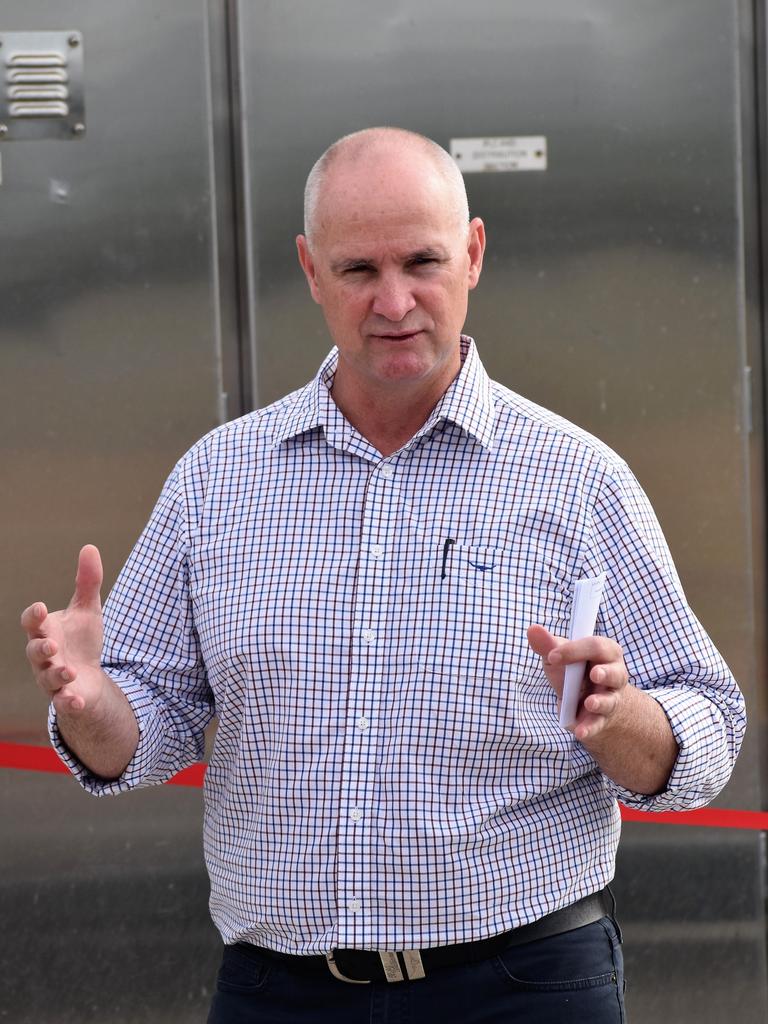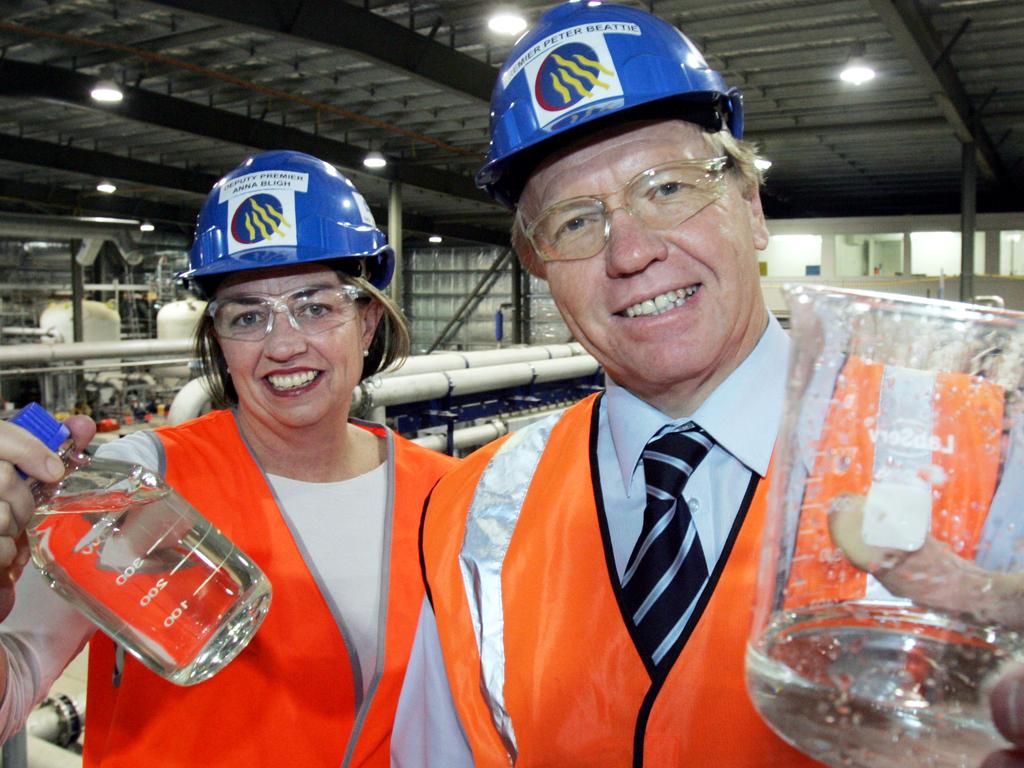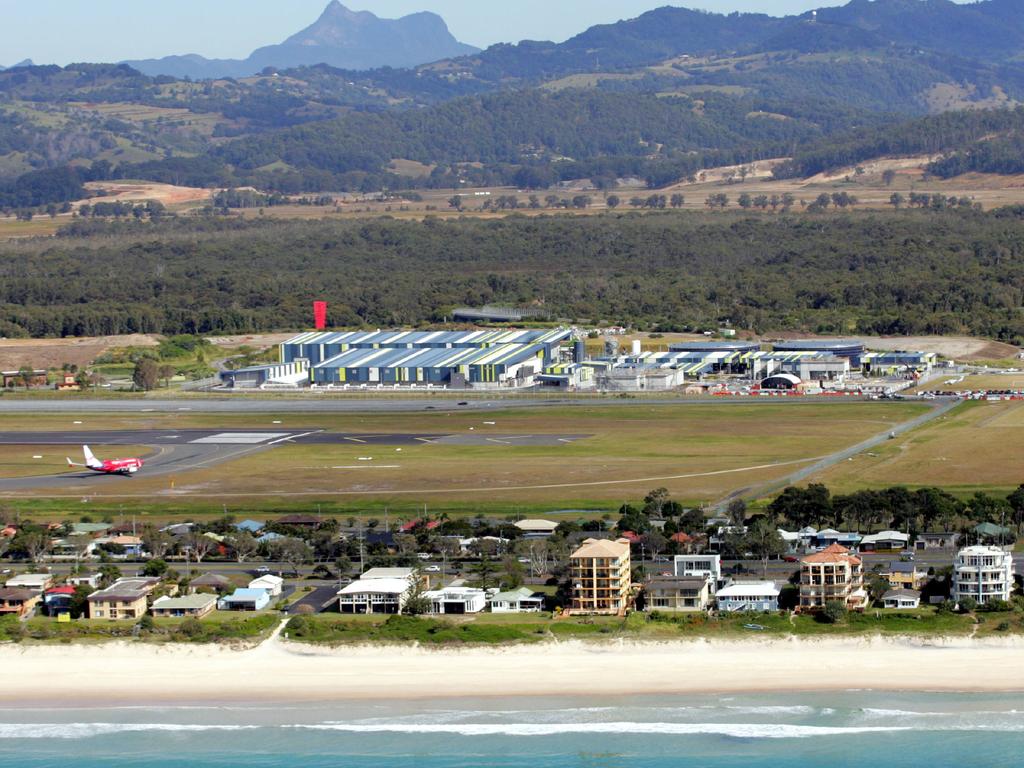Plan for $1bn desalination plant despite Premier, minister split
A new desalination plant could be built in Queensland amid cracks in the Palaszczuk government over how to secure the region’s water supply.
QLD News
Don't miss out on the headlines from QLD News. Followed categories will be added to My News.
A multibillion-dollar desalination plant could be built on the Sunshine Coast amid cracks in the Palaszczuk government over how to secure the region’s water supply and avoid a controversial debate about recycled water.
The political gridlock at the highest level of the Palaszczuk government comes as Seqwater finalises a critical study that will warn of earlier-than-expected water shortages due to South East Queensland’s explosive population growth.
Seqwater’s report will urge the government to invest in new water infrastructure or face shortages within the grid, which was on the cusp of tough restrictions before flooding rain arrived in November.
However, a disagreement between Premier Annastacia Palaszczuk and her Water Minister Glenn Butcher over how to drought-proof the region is set to come to a head – and could result in billions of dollars being spent on a new desalination plant in Caloundra to avoid another public debate and the controversy of drinking recycled water.

Ms Palaszczuk is open to building the state’s second desalination plant on the Sunshine Coast, with sources familiar with government discussions declaring it “certainly an option” despite the cost likely to exceed $1bn.
However, Mr Butcher is understood to be sceptical about the significant investment and is instead a supporter of increasing the supply of recycled water.
Mr Butcher’s support is at odds with Ms Palaszczuk, who has publicly and privately hosed down the politically-sensitive issue.
A source familiar with Ms Palaszczuk’s position said she was “aware of the public perception” about recycled water, having experienced the debate as a Beattie government MP during the Millennium drought of the late 2000s.
Questions to Ms Palaszczuk’s office about her position were answered by a spokesman, who said her government was “not considering expanding the use of recycled water nor building more recycled water infrastructure”.
He did not respond to questions about whether the Premier supported a new desalination facility.
Mr Butcher did not comment on the desalination proposal or his support for recycled water.

He said the government had no plans to change the level of recycled water in the network while the South East Queensland water grid remains almost 90 per cent full.
“The government is not considering increasing the use of recycled water, or building more recycled water facilities,” he said.
“The SEQ Water Security Program is expected to be released this year.”
A site at Meridian Plains near Caloundra already owned by Seqwater is tipped to be the site of a new desalination plant.
It would be Queensland’s second after Tugun, which cost $1.2bn, was opened in 2009 in response to the Millennium drought.
That plant, while controversial at the time, permanently supplies water to the South East Queensland grid.
The second desalination plant could be built despite South East Queensland’s $2.5bn Western Corridor Recycled Water Scheme largely sitting idle.
The scheme, which also opened in 2008 in response to the drought, is supplying industry and large businesses with water that would otherwise be drawn from dams.
However, it can supply purified recycled water to Lake Wivenhoe once dam storage drops below 40 per cent capacity. However, its use remains controversial.

Seqwater last year delayed the decision to begin restarting the recycled water scheme despite dam levels reaching the 40 per cent trigger, before summer’s above-average rain and flooding meant the decision was no longer required.
The Palaszczuk government has been reluctant to discuss a return to recycled water, despite it being widely used in cities including Los Angeles, Singapore and Perth.
Seqwater’s Water Security Program is expected to note stronger-than-expected population growth is likely to increase the urgency for new water infrastructure.
Seqwater chief executive Neil Brennan declined to say whether the organisation supported a desalination plant, or if cost modelling had been undertaken.
He also would not reveal what procedure and cost was required to increase the output of recycled water to service residential customers, but said Seqwater’s security review was under way.
“Our current Water Security Program is published online and sets out our direction for supplying SEQ’s drinking water over the next 30 years,” he said.
“We periodically review our plan and an updated version will be completed and published later this year.
“The review will consider updated climate-change modelling and future population growth projections and will inform planning for any major investment.”
More Coverage
Originally published as Plan for $1bn desalination plant despite Premier, minister split








